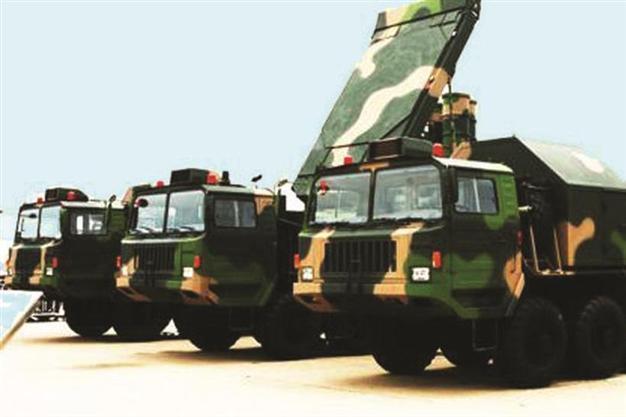Turkey may be forced to ‘standalone’ air defenses
Burak Bekdil

The Chinese contender in the Turkish bid defeats a US partnership of Raytheon and Lockheed Martin, which was offering the Patriot air defense system.
A Turkish decision to select a Chinese contender for the construction of the country’s first long-range air defense system may force Turkey into ending up with a “standalone” system with little or no integration with NATO assets like radars, official and industry sources have said.“NATO members should be able to take action to prevent the integration of the Chinese system into any NATO asset deployed for Turkey’s protection from enemy missiles and aerial assets,” a NATO defense attaché in Ankara said.
A second defense official from a NATO member country confirmed this. “NATO would be extremely unwilling to cooperate for the integration of a system built on Chinese technology with any NATO asset,” he said.
Another defense expert said that for Turkey’s Western allies it was “technically possible to fully isolate that [Chinese] system.” That would force Turkey into the possession of a serious air and anti-missile defense architecture with the features of a “standalone” system, analysts said.
“It is difficult to understand how the Turks expect to build a solid air defense system that will most likely be deprived of NATO’s aiding assets,” a London-based analyst said.
Defense Minister İsmet Yılmaz announced after a top defense industry meeting Sept. 26 that a contract for the construction of long-range air and anti-missile system had been awarded to China Precision Machinery Export-Import Corporation (CPMIEC).
The Chinese contender defeated a U.S. partnership of Raytheon and Lockheed Martin, which was offering the Patriot air defense system, Russia’s Rosoboronexport, which was offering the S-300, and the Italian-French consortium Eurosam, which is the maker of the SAMP/T Aster 30.
The initial estimated contract price was $4 billion, but the Chinese offer stood at anywhere between $3 billion to $3.5 billion, although officials did not confirm any figure.
Turkey presently has no long-range air-defense systems. The $4 billion program, dubbed the T-LORAMIDS, is being designed to counter both enemy aircraft and missiles.
A Washington-based defense analyst said this was a strategic move for China on two counts. “Firstly, it shows that China is moving up the defense exports food chain from low-end systems to smaller countries, cracking the ranks of first world defense customers like Turkey. Second, no doubt Beijing made this a strategic priority to gain insights into U.S. air and missile defenses. Consider the fact that their spying in Asia has targeted U.S. allies with access to our top systems, especially Taiwan and Japan.”
The analyst also said Turkey was an ideal location for alliance missile defenses, but “not if it has Chinese defensive systems, [which] may further undermine [Turkey’s] relations with Washington or Europe.”
About half of Turkey’s network-based air defense radars have been paid for by NATO, and are part of the NATO Air Defense Ground Environment. “Turkey can always decide to build a standalone system. But in that case, abstracting the air defense system from NATO assets would mean that Turkey will lose half of its radar capabilities,” one defense analyst said earlier.
Turkey would need interface data to make its own air defense architecture interoperable with NATO assets, primarily data on the Identify Friend and Foe system. This is top secret and cannot be installed into any Chinese system.
















